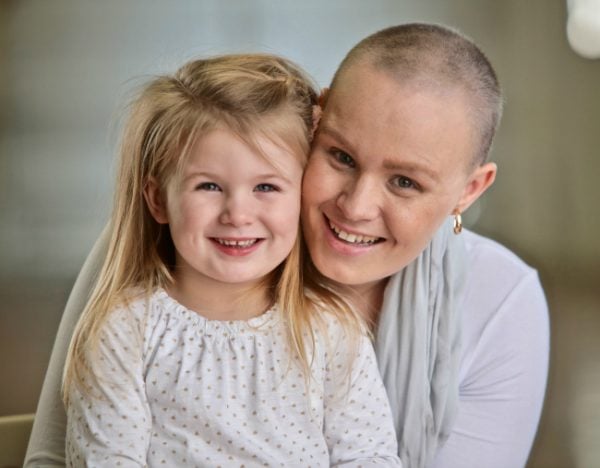It was November 14, 2016, when Tameeka Jones’ doctor said the words “breast cancer“.
Then just 27 years old, with no family history, the Lake Macquarie waitress was left reeling. She’d presumed the lump she’d noticed while showering just over a week earlier was a knot or maybe even a cyst. Instead, it was an 8cm by 9cm tumour – HER2+, Stage three.
“I was pretty well shocked. My mum came to the appointment with me, and we didn’t cry or anything, but we just looked at each other like, ‘Here we go again,'” Tameeka told Mamamia.
Just two months earlier, Tameeka had lost her aunt to Leukaemia. The youngest of eleven children, she was only 36 when she died.
“It had all happened in a year – she was diagnosed, she went through treatment and we lost her,” Tameeka said. “So it was still really fresh in our minds, that ‘cancer’ word.”
As Tameeka’s own diagnosis rolled around in her mind, her thoughts kept settling on her daughter, then aged just 18 months.
“I got emotional when someone mentioned her,” she said. “Because my first thoughts were, ‘I’m going to leave her. She’s not going to have a mum to take care of her.'”
Though she has the support of her extended family, the single mum said this thought defined her attitude toward her whole treatment process.
It’s why, when doctors raised the idea of a new Breast Cancer Trials Australia study called ELIMINATE, she was determined to participate.
The trial is investigating whether, in large hormone-positive receptive breast cancers like Tameeka’s, it’s beneficial to administer hormone treatment and chemotherapy at the same time, before surgery, in order to shrink the tumour. (In most cases, these treatments are given one at a time after a mastectomy operation has taken place.)


